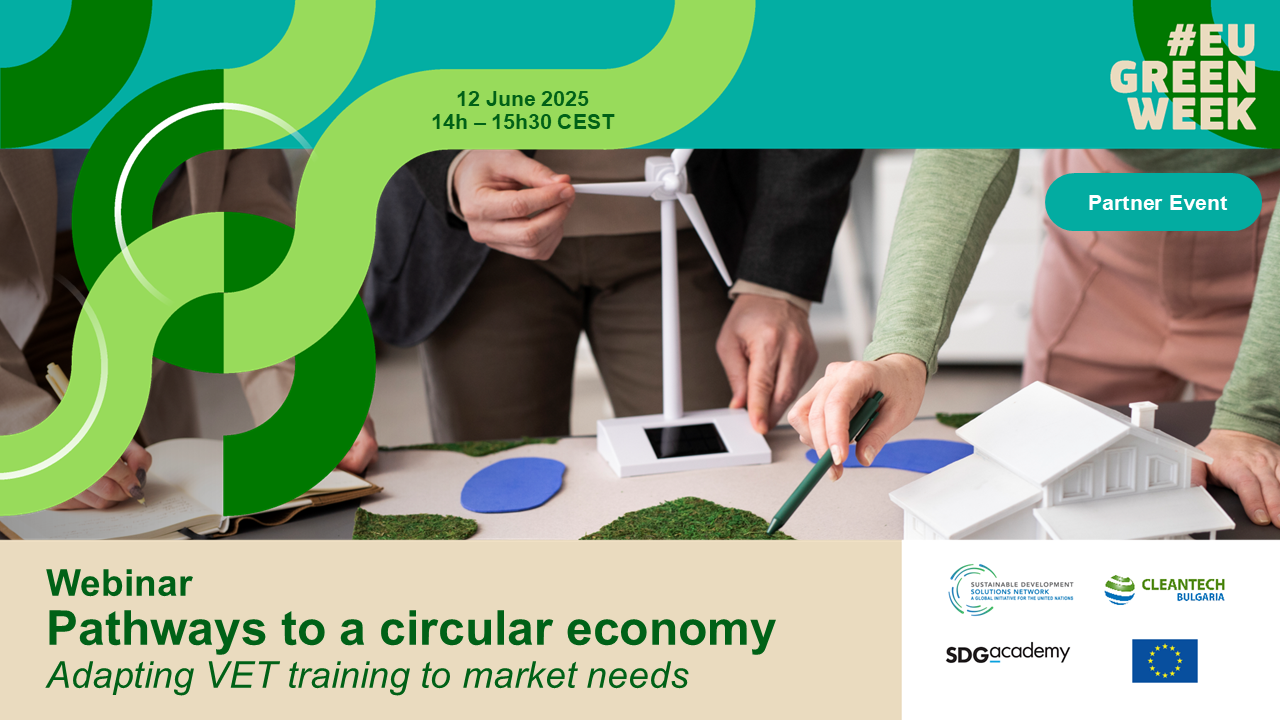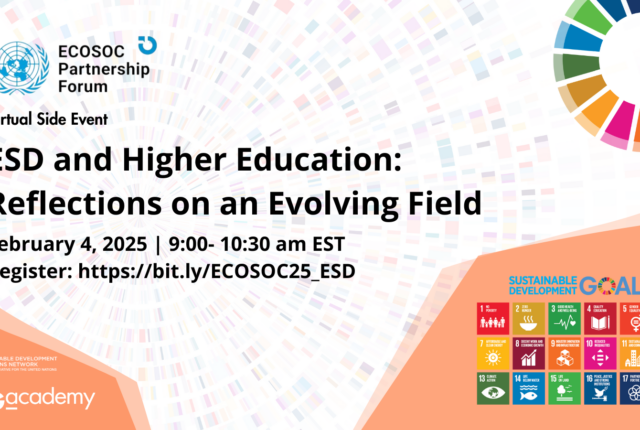On 12 June 2025, policymakers, VET providers and industry leaders joined the official side event of the 2025 EU Green Week to discuss how Vocational Education and Training (VET) can equip workers with circular economy skills to meet new EU sustainability standards and industry demands. Here are 5 key takeaways from the discussion.
This page was updated on June 24, 2025 to include a summary and recording of the event.
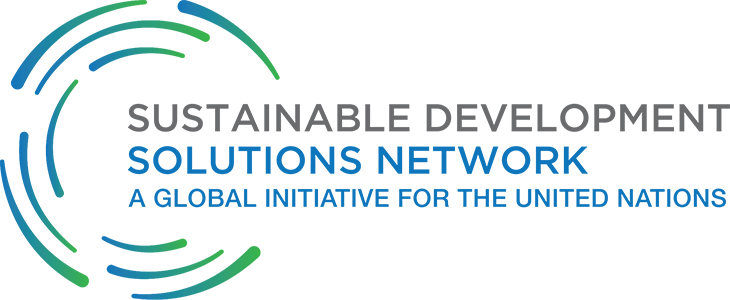
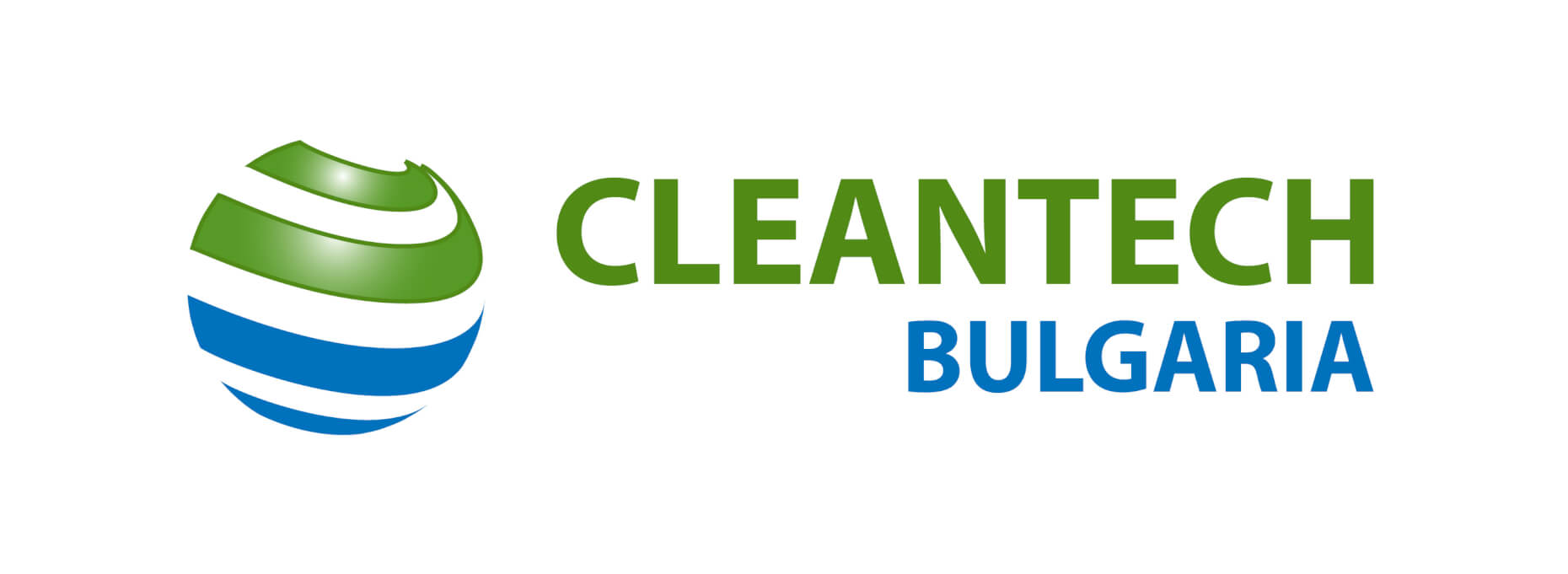
What can vocational education training (VET) and certification do to stay relevant in an evolving job market transforming to circular economy practices?
VET centers and educational institutions are under pressure to update their offerings to meet labor market needs. But this is not a straightforward task, mainly because EU educational pathways remain decentralized, and there’s no EU-wide certification and recognition of green and digital skills.
Meanwhile, the job market is changing rapidly. The OECD estimates that over 25% of existing jobs will be strongly affected by net-zero policies. Between 2020-2021, 13% of workers lacked resources to meet job demands, while 70% of companies struggled to find qualified workers for green and digital jobs.
This challenge was at the center of the webinar organized by the UN Sustainable Development Solutions Network (SDSN) and Cleantech Bulgaria, with partners like the BuildSkills Academy, University College Dublin (UCD), UNITAR, Circular Berlin, and kyklOIKOdromio (KYK), on 12 June 2025 as part of the EU Green Week.
The event focused on exploring how policymakers, educators, and industry leaders can support VET programs and certifications to stay relevant. The built environment, one of the most resource-intensive sectors, served as a key case study.
So what are the main insights from the discussion? Here are five key takeaways from the webinar to keep in mind.
1. Flexible learning pathways need to be widespread and recognized in the EU
The European Commission has a goal of reskilling and upskilling at least 60% of adult workers every year. But this ambitious goal requires more flexible learning pathways.
Enda Murphy (UCD) highlighted the importance of micro credentials in offering a faster and more adaptable alternative to traditional education, which often struggles to quickly adapt its curricula to the green and digital skills needed. Short and targeted programs also allow a holistic approach that aligns with the 17 SDGs.
In this regard, Professor Paul Walsh (SDG Academy) emphasized the need for EU-wide certification and recognition of such flexible pathways to not only support reskilling professionals but also greening global supply chains and aligning non-EU companies to the Green Deal directives.
2. Multistakeholder partnerships are essential to create relevant and accessible learning pathways
Creating impactful learning pathways requires a multistakeholder approach, meaning a strong collaboration between public and private sectors. To make education more responsive to real-world needs, multistakeholder partnerships must co-design training that reflects sector-specific challenges and is accessible across contexts.
Elena Proden (UNITAR) highlighted this through the Capabilities 4 the Future Hub, an initiative that seeks to foster dialogue between governments, industry, and education providers to align industrial policy with skills development, promote cross-border coordination and collaboration, and create capacity-building opportunities, especially in lower-income countries and regions where small and medium-sized enterprises typically lack access to tailored learning opportunities.
3. The built environment is key to achieve the green transition
It is no coincidence that the built environment was chosen as a key case study. It is Europe’s most resource-intensive sector, responsible for approximately 50% of the natural resource consumption, 40% of energy consumption, 35% of greenhouse gas emissions, and 30% of waste. Economically, it generates 10% of the EU’s total GDP and over 15 million jobs.
Transforming this sector through targeted professional education is essential for meeting Green Deal targets. Maria Nakova (CTBG) emphasized the role of the BuildSkills Academy (BSA) in supporting VET training in aligning their offerings with the labor market needs. Recently, the BSA launched an online platform where VET centers can use the BuildEnrichedSkills methodology to enrich their own courses with green and digital content.
Nakova also highlighted the importance of Centers of Vocational Excellence (COVEs) and the European Digital Innovation Hubs (EDIHs) in aligning training with industry needs, accelerating digital and green skills, and closing gaps between workers, SMEs, and education systems. For more details, please check the presentation below.
4. Adapting VET training to circular economy requires innovation and a shifted mindset
Developing circular economy skills requires a forward-looking and innovative approach to education. It is not just about waste reduction or emissions but also about co-creating new learning experiences that reflect complex, evolving challenges.
Dina Padalkina (Circular Berlin) shared how their work in the BuildSkills Academy involved identifying gaps and forecasting future jobs in construction. Padalkina and her team focused on 35 occupations relevant to the construction sector and mapped each one to existing and future skills, which resulted in the clear need for a multidisciplinary approach. For VET providers, this means more than updating content. It also requires adopting new teaching formats and a shifted mindset that reframes the above challenge into an opportunity to develop a strategic advantage and enrich their course’s portfolio. More information can be found in the presentation below.
5. VET providers must overcome systemic and practical barriers to integrate circular skills effectively
Integrating circular economy skills into VET requires addressing major barriers. Anthi Charalambous (KYK) identified four main challenges: outdated and fragmented curricula, underqualified trainers lacking practical experience, limited industry integration, and insufficient policy support and training.
To overcome these, Charalambous emphasized the need for multidisciplinary curricula that embed sustainability, systems thinking, and life-cycle analysis. Courses should be tailored to sector-specific needs, and trainers must be carefully selected and upskilled to meet industry demands. Finally, collaboration with innovation centers, businesses, and circular economy actors is essential to co-develop relevant, hands-on training that reflects real-world practices and challenges. More details are available in the presentation below.
What’s next?
The path to a circular economy is clear: VET training needs to adapt quickly, which requires a coordinated and forward-looking strategy from a multitude of stakeholders.
It is essential to invest in micro credentials and support the creation of an EU-wide certification framework that is internationally recognized. The BuildSkills Academy is a key initiative to follow, as one of its objectives is to become a fully integrated academy that will certify professionals on transitional skills.
It is also equally important to strengthen multilateral industrial cooperation and ensure global supply chains become greener and more sustainable. Initiatives like the Capabilities 4 the Future Hub can support sectors and promote cross-border collaboration to anticipate future skills and not just respond to the current ones.
Finally, innovation in education must be matched with policy support, funding, and infrastructure. VET providers, policymakers, and industry leaders, especially from the built environment, must embrace circular economy practices and skills, and turn this into an opportunity and competitive advantage.
Click the arrows below to expand event details
Event Details
This webinar was an official side event of the 2025 EU Green Week.
As Europe advances toward a circular economy under the European Green Deal, Vocational Education and Training (VET) must evolve to meet new industry demands. This webinar, co-organized by the UN Sustainable Development Solutions Network and Cleantech Bulgaria, brings together policymakers, educators, and industry leaders to explore how VET programs and certifications can stay relevant in a rapidly changing regulatory and market landscape.
🤝Partners: BuildSkills Academy, Circular Berlin, kyklOIKOdromio, and UNITAR
📅 Date: 12 June 2025
⏰ Time: 14:00 – 15:30 CEST
📍 Location: Online (Zoom) – View the recording
Concept
The transition to a circular economy is a key priority for Europe towards a more competitive, sustainable and resilient future. Under the European Green Deal, the goal is to achieve climate neutrality by 2050, reshaping industries and demanding a workforce equipped with new skills.
Decisions made in Europe also have global implications, impacting global value chains. New EU directives, such as the Corporate Sustainability Due Diligence Directive (CSDDD) and the Corporate Sustainability Reporting Directive (CSRD), reinforce the need for companies to integrate sustainability into their operations and supply chains. Businesses worldwide will need to comply with EU standards or seek EU-recognized certifications to maintain market access.
As industries shift towards circular models, Vocational Education and Training (VET) providers play a crucial role in ensuring that workers and businesses are prepared to adopt circular strategies, meet new environmental standards, and drive innovation. However, a significant skills gap persists, with 70% of companies struggling to find qualified workers for green and digital jobs. The challenge is ensuring that VET curricula and certifications remain relevant in a fast-changing regulatory and market landscape.
The construction sector is identified as a key industry to lead this transformation. Currently, it accounts for approximately 50% of the world’s natural resource consumption, 40% of unprocessed energy use, 35% of global greenhouse gas emissions, and 30% of global waste. Aligning VET programs with sustainability directives in this sector is critical to reducing environmental impact and ensuring a skilled workforce ready to meet new industry demands.
This webinar will explore how VET programs and certifications can stay relevant in this evolving landscape. The discussion will address:
- Lessons from the built environment as a case study for industry-VET collaboration.
- How to support greener and more circular global value chains.
- Best practices for integrating circular skills into training programs.
- The role of certifications in aligning workforce skills with industry and policy changes.
Objectives
Discuss how certifications can evolve to reflect market and policy changes, potentially influencing non-EU countries to adopt EU-recognized certifications.
Discuss solutions for greener, more circular global value chains in light of EU legislation, including the European Green Deal and sustainability due diligence directives.
Use the built environment as a case study to explore how industry-VET collaboration can ensure training programs remain up-to-date.
Agenda
14h – 14h15
Welcome & Keynote
- Professor Patrick Paul Walsh, Vice President of Education & Director of the SDG Academy, UN Sustainable Development Solutions Network (SDSN)
14h15 – 15h00
Panel Discussion: Keeping VET & Certifications Relevant in a Circular Economy
Speakers
- Elena Proden, Senior Specialist, Strategic Implementation of the 2030 Agenda Unit, UNITAR
- Solutions for a more sustainable global value chains
- Maria Nakova, Project Leader, BuildSkills Academy; Head of digital innovation hub in construction sector; Manager of Strategic Development, Cleantech Bulgaria
- Shaping the Future of the Construction Sector: Bridging Skills Demand in green and circular transition through EDIHs and CoVEs
- Dina Padalkina, Founder and City Lead, Circular Berlin
- Identification of the future circular economy skills in construction and designing learning experiences for construction professionals.
- Anthi Charalambous, President of Management Board, kyklOIKOdromio (KYK)
- Challenges faced by VET providers in integrating circular skills into training programs
Moderator: Professor Enda Murphy, School of Architecture, Planning and Environmental Policy, University College Dublin
15h00-15h20
Q&A
15h20 – 15h30
Closing Reflections: Next Steps for VET, Policy & Industry
- Moderator: Wrap-up of key takeaways.
- Call to action: How stakeholders can collaborate to strengthen circular economy skills and certifications.
Speakers:
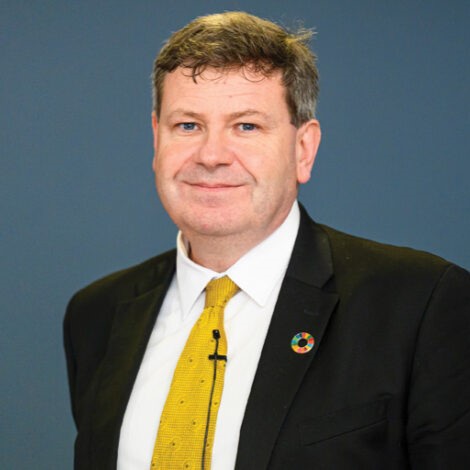
Patrick Paul Walsh, Vice President of Education and Director, SDG Academy, UN Sustainable Development Solutions Network (SDSN)
Patrick Paul Walsh is the Vice President of Education and Director of the SDG Academy at the UN Sustainable Development Solutions Network (SDSN). He is on secondment from University College Dublin where he remains a Full Professor of International Development Studies, Director of the UCD M.Sc. in Sustainable Development in partnership with the SDG Academy and President of the Statistical and Social Inquiry Society (SSISI) of Ireland. He received a Ph.D. in Economics from the London School of Economics and Political Science. He is a Government of Ireland Fellow, Marie Curie (Brussels) Fellow, IZA (Bonn) Fellow, RSA (London) Fellow, EIIR (Brussels) Fellow and REPOA (Tanzania) fellow. He has held academic positions in Trinity College Dublin, K.U. Leuven, Harvard University and Columbia University. He has also held positions in the United Nations, European Commission, IMF and World Bank.

Elena Proden, Senior Specialist, Strategic Implementation of the 2030 Agenda Unit, UNITAR
Elena Proden is a development economist with more than 15 years of experience working for the UN at country, global and regional levels on capacity building and applied research. She currently works as a Senior Specialist and Team Leader of the Strategic Implementation of the Agenda 2030 Unit at United Nations Institute for Training Research supporting countries on national planning and economic transformations, statistical production and dissemination, M&E, as well as higher education, TVET and academia engagement. She is also coordinating UN SDG:Learn partnership on UNITAR’s behalf to promote better learning opportunities for different stakeholders from policy-makers, statisticians, evaluators to businesses and CSOs.
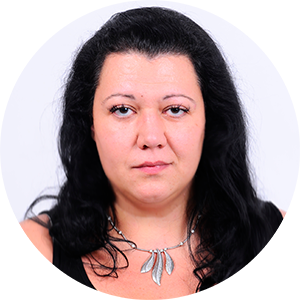
Maria Nakova, Project Leader of BuildSkills Academy, Head of the European Digital Innovation Hub in the Construction Sector and Strategic Development Manager at Cleantech Bulgaria
Ms. Maria Nakova stands as a driving force in advancing vocational excellence, digital innovation, and sustainable transformation across Europe’s construction sector. With over 20 years of leadership at the crossroads of innovation, sustainability, and skills development, she has dedicated her career of project management in empowering professionals and businesses to meet the evolving demands of the green and digital economy. As Project Leader of BuildSkills Academy and Head of the European Digital Innovation Hub in the Construction Sector (EDIHCS), Maria spearheads initiatives that elevate workforce capabilities, ensuring that skills development is aligned with industry needs and future-proof strategies. Through her role of Manager strategic development at Cleantech Bulgaria, she actively supports SMEs and public sector in mastering their digital and green transitions, embedding excellence into vocational training and operational practices. A recognized expert in fostering circular economy solutions, Maria has led transformative capacity-building programs, driven innovation transfer, and shaped policy frameworks that accelerate sustainable growth. Her management of large-scale EU-funded projects has delivered actionable policy recommendations, positioning skills and vocational education as key enablers of the twin transition—digital and green—across diverse ecosystems.In her upcoming presentation, Maria will share pioneering insights from BuildSkills Academy, showcasing how Centres of Vocational Excellence (CoVEs) and European Digital Innovation Hubs (EDIHs) are redefining the construction sector. She will illustrate how strategic skill-building initiatives are not only bridging the gap between current workforce capabilities and emerging green transition goals but also setting new standards for vocational excellence across Europe.
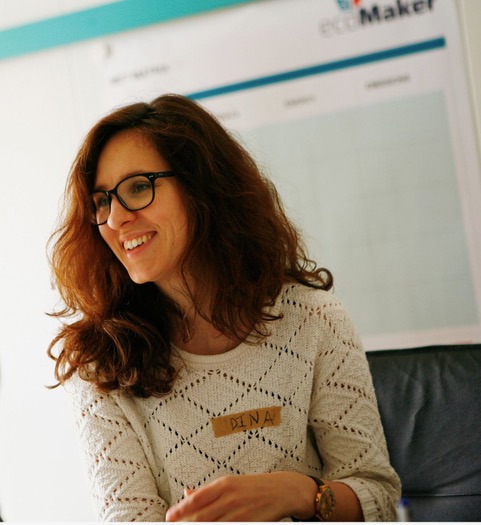
Dina Padalkina, Founder and City Lead, Circular Berlin
Dina Padalkina is the Founder, Chairwoman, and Managing Director of Circular Berlin, a non-profit driving the transition to a circular economy through local collaboration, knowledge sharing and innovation. With a background in corporate strategy and sustainability, she has worked at the intersection of economic transformation and climate action since 2017. She founded Circular Berlin in 2018 to build a community of practice for the circular economy in the city of Berlin. As the built environment lead she focuses on the topic of Skills & Trends for Circular Construction, Circular Products & Business Models, and urban innovation.
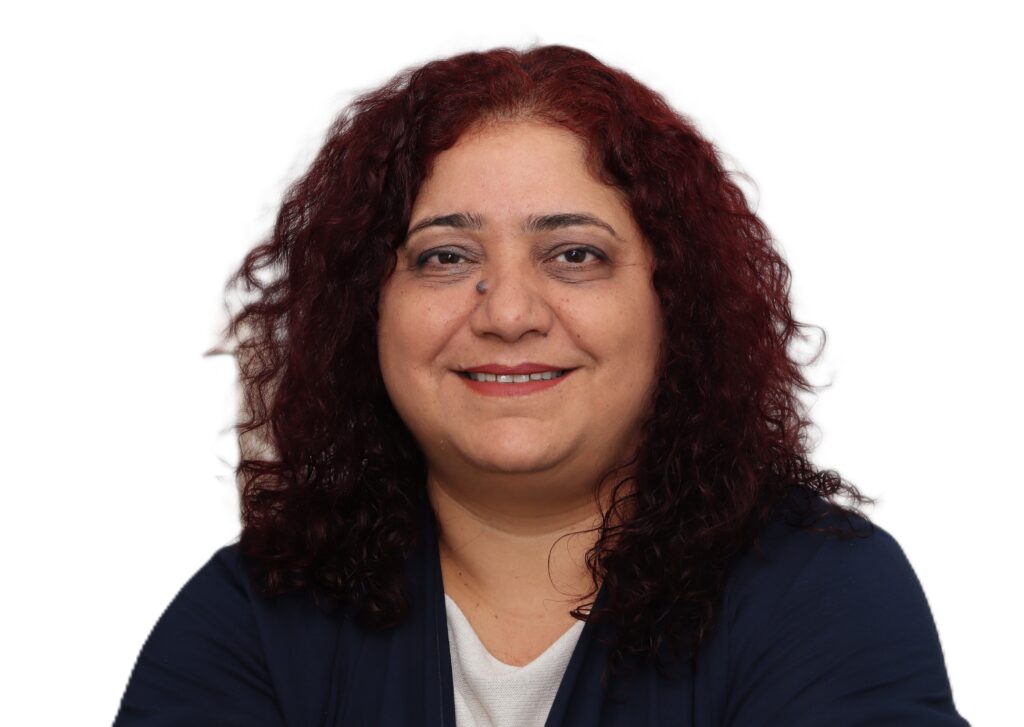
Anthi Charalambous, President of Management Board kyklOIKOdromio (KYK)
Anthi Charalambous is a Chemical Engineer, a graduate of the National Technical University of Athens (NTUA), with postgraduate studies in Environmental Engineering, Business Administration (MBA), and Renewable Energy Sources. She began her career in 1997 working on environmental projects abroad and has since built extensive experience in the energy and environment sectors, holding senior positions in prominent organizations both in Cyprus and internationally. She has extensive experience as a Vocational Education and Training (VET) trainer, with a strong track record in designing and delivering training programmes and developing training materials. She has conducted numerous training sessions and workshops, particularly in the field of the circular economy, targeting professionals, SMEs, and public sector stakeholders. She is currently the Director of ideopsis Ltd, a consultancy specializing in energy and environmental issues, and the founder of the environmental NGO KyklOIKOdromio. She is actively engaged in standardization and sustainable development, participating in the National Standardization Committee for the Circular Economy as well as other international committees. In 2021, she was appointed to the European Industry Advisory Forum, and in 2022, she was elected President of the International Solar Energy Society Cyprus Section (2022–2024). She also serves as a member of the Energy Committee of the Cyprus Scientific and Technical Chamber (ETEK) and is a member of the Climate Change Committee of the International Alliance of Women (2023–2025).
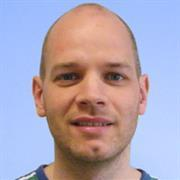
Enda Murphy, Professor School of Architecture, Planning and Environmental Policy, University College Dublin
Enda is Professor of Planning at the School of Architecture, Planning and Environmental Policy where he has been programme Director for the Masters in Regional and Urban Planning (MRUP) since 2019. He is also a UCD academic lead for the Sustainability and Climate Committee of Una Europa. Between 2015-2018, he held the position of Vice-Principal for Graduate Studies and Director of the Graduate School for the College of Social Sciences and Law (CoSSL). Beyond the University, he is an active Editorial Board Member of PLOS ONE, one of the world’s leading science journals; he is also a current member of the UN SDSN SDG Academy High Level Advisory Council (HLAC) whose mission focuses on the international development of Education for Sustainable Development. His research interests are broad in scope but centre on the areas of urban transportation and spatial planning, environmental noise, neoliberalism/neoliberalisation, and the UN Sustainable Development Goals (SDGs). He has published widely in the international literature and is author/co-author of more than 100 academic journal papers, book chapters, conference papers and reports and is co-author of three books. Enda has held visiting professor positions at the University of Economics, Ho Chi Minh City, University of Hartford, USA, Cape Peninsula University of Technology, Cape Town, CRENoS, University of Cagliari, and at KTH Royal Institute of Technology, Stockholm. He is a former Fulbright Scholar.
